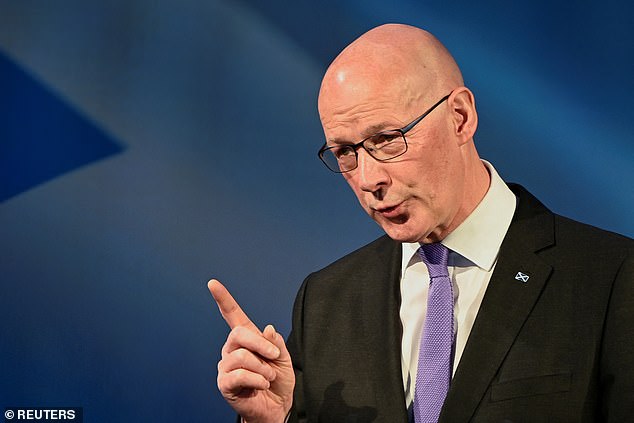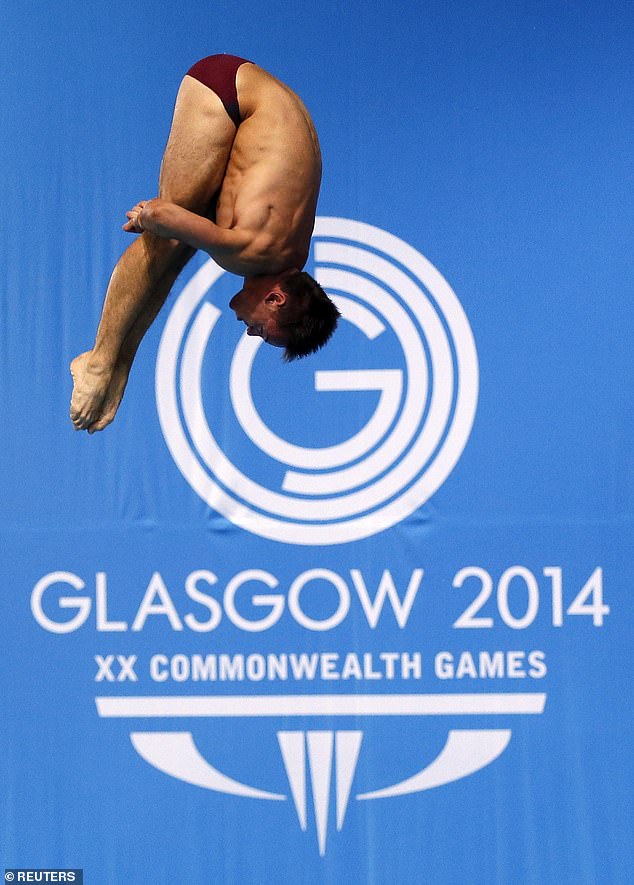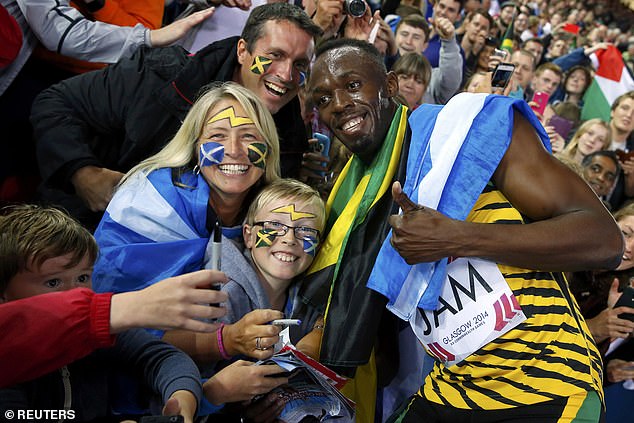EXCLUSIVE: First Minister John Swinney warns there’s no prospect of public funding for Glasgow’s 2026 Commonwealth Games bid
First Minister John Swinney has warned the Scottish Government that no public funds will be made available to support a bid for the Commonwealth Games while negotiations continue over a possible return to Glasgow in 2026.
In a wide-ranging interview, Swinney confirmed to Mail Sport that no government money would be made available for the proposed project, stressing that financial pressures made further expenditure impossible.
The Games, mired in controversy since the Australian state of Victoria withdrew in 2023, are currently in a vacuum, with no agreement yet on who will host the next edition of the event.
The lack of interest and fears for the future of the sporting event prompted Commonwealth Games Scotland to propose a ‘scaled down’ version of the event, with just 10-13 sports and utilising existing infrastructure around Glasgow.
The organisation said it had conducted a feasibility study in December 2023, assessing the viability of Scotland as a cost-effective alternative host.
The company said its priority was to ensure the Games would take place in 2026. It said it would explore its idea further with the Commonwealth Games Federation and key partners.
The 2014 Commonwealth Games proved to be a great success in Glasgow

Scottish First Minister John Swinney has warned that there will be no government money available to bring the Games back to Glasgow in 2026

The 2014 Games were held in Glasgow, but Edinburgh hosted the diving events
Swinney confirmed to Mail Sport that talks are underway to bring the Games to Glasgow, but stressed that this “has to happen within a very short space of time”.
“We had seven years to prepare for the Commonwealth Games in 2014,” the First Minister said. “If the Commonwealth Games came to Scotland in 2026, we would have less than two years to prepare for that, so that’s a huge factor that we have to grapple with.
‘In the current financial context we could not put public money into this venture, it is simply not possible. We have enormous pressure on our budget and we have been open about that.
‘We are of course in discussions with the British government, with Commonwealth Games Scotland and the Commonwealth Games Federation and we are looking at whether it is possible to consider this proposal.’
According to Commonwealth Games Scotland’s bid proposal, the concept would be delivered within two years, with an estimated cost of £130-150 million. There would be no significant demand for government money, due to £100 million of funding from the Commonwealth Games Federation as part of the Victoria Settlement Agreement.
The remaining £30-50m, it was said, would be ‘funded primarily by commercial revenue’, raised through ticketing, sponsorship and broadcasting. A return of £100-200m was expected, with additional expenditure from outside the UK of at least £100m.
While Commonwealth Games Scotland’s proposal may be innovative, fears remain that the cost to the public purse will be higher than anticipated. It is unclear, for example, how much would need to be spent on policing and other blue-light services.
In an interview with the newspaper i, Dr. Johan Rewilak, an expert in sports economics at the University of South Carolina, warned that there is a growing body of academic work showing cost overruns and overly optimistic estimates of the economic benefits of hosting such large events.
“Glasgow may have to spend more than they think,” he said. “They may have to expand or upgrade a few things, even if nothing new has to be built. Security costs can tend to get out of hand.
‘Most academic literature shows that organizing a major sporting event does not provide an economic boost.’

Sprint legend Usain Bolt competed in the 4x100m relay at Hampden and won gold
When asked about possible additional costs that would have to come from the state coffers, the prime minister reiterated his assessment of the financial situation.
‘I want to stress that public finances are under enormous pressure and I cannot guarantee that public spending will be used to support any bid.
‘The 2014 Commonwealth Games were one of the most joyful occasions that any of us can remember in our lives — it was an absolutely wonderful experience. But there was a lot of careful planning that went into it. It took seven years of preparation to get it right, and it was amazing.
‘We clearly have a much shorter window to 2026, and we have to be practical. As ambitious and optimistic as we are, we have to be realistic about the ability to deliver on these commitments and in the current financial context, public financing would simply not be possible for a business of this type.’
Hosting such a large-scale event had devastating consequences for Birmingham City Council after it hosted the 2022 Games, which saw the council declare itself bankrupt.
In 2019, the Commonwealth Games Federation announced that the Birmingham 2022 Games would cost an estimated £778 million, split 75-25 between the UK central government and Birmingham City Council.
An inquiry later found it contributed at least £870m to the local economy, with the council and local partners contributing around £184m and central government adding a further £594m. A Freedom of Information request in 2020 revealed the council planned to spend an additional £34m on other costs.
In Australia, organizers pulled out after expected costs soared to more than $3 billion.
A proposal was made for a “streamlined” 2026 Games to be held in the Gold Coast, which hosted the event in 2018, and Perth. However, the joint proposal failed, leading Commonwealth Games Australia CEO Craig Phillips to declare that the CGF must now “seriously consider” any bids from outside the country.
Since then, Singapore has ruled itself out of hosting the Games, while Malaysia turned down the opportunity earlier this year.
